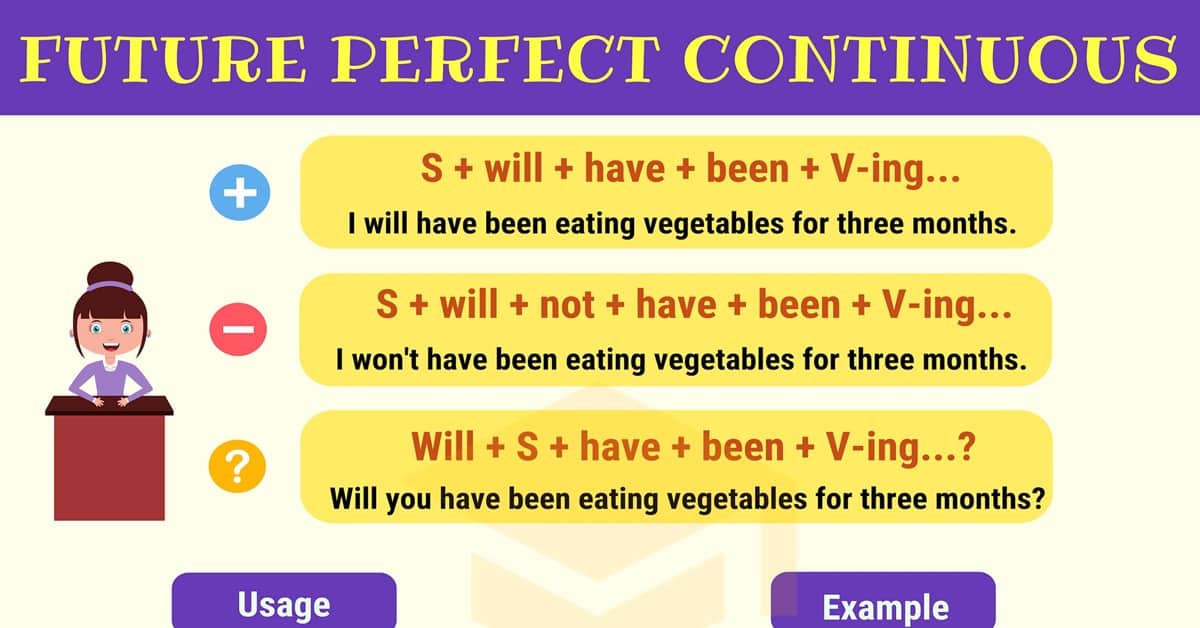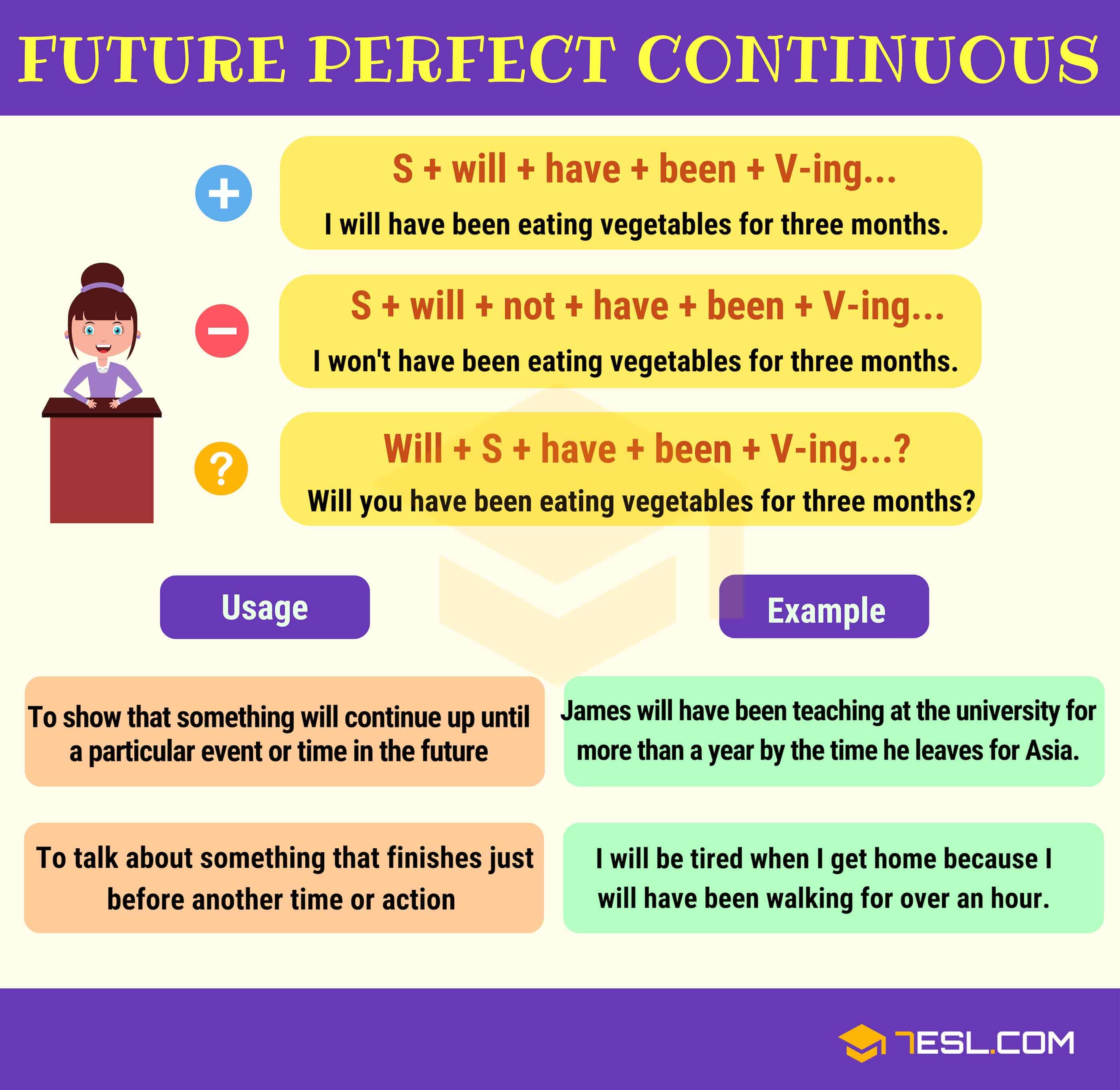Future Perfect Continuous Tense! In this section, we are going to be looking at the future perfect continuous tense in a much more detailed manner as well as the rules we must follow when using it. This will give you a clearer understanding of what it is used for and enable you to form sentences that are grammatically correct and precise.
Future Perfect Continuous Tense
When we are talking about an action that will happen and continue in the future, we must employ the use of the future perfect continuous tense. Whilst the name of this tense might seem long and complicated, its use and rules are quite easy to understand.
The Future Perfect Continuous is a verb form or construction used to describe actions that will continue up until a point in the future.
In English, the Future Perfect Progressive is formed by combining the modal “will“, the auxiliary verb “have“, “been“, and the present participle of the main verb (with an -ing ending).
Positive Sentence:
S + will + have + been + V-ing (present participle) +…
Example:
- We will have been living in this house for 10 years by next month.
Negative Sentence:
S + will + not + have + been + V-ing (present participle) +…
Example:
- I won’t have been travelling to New York for 2 years by the end of October.
Question form:
Will + S + have + been + V-ing (present participle) +… ?
Example:
- Will you have been eating vegetables for three months?
How to Use the Future Perfect Continuous Tense
Learn how and when to use the Future Perfect Continuous Tense (or the Future Perfect Progressive) in English with rules, examples and worksheet.
The Future Perfect Progressive Tense is used:
– To show that something will continue up until a particular event or time in the future
Example:
- James will have been teaching at the university for more than a year by the time he leaves for Asia.
– To talk about something that finishes just before another time or action (in this case, in the future)
Example:
- I will be tired when I get home because I will have been walking for over an hour.
Time Expressions Used with Future Perfect Progressive
- By + this year/ month/ week
- Next year/ month/ week
- For + an hour, for 5 years
- By then
- Since morning, since 1995
- By tomorrow









0 Comments